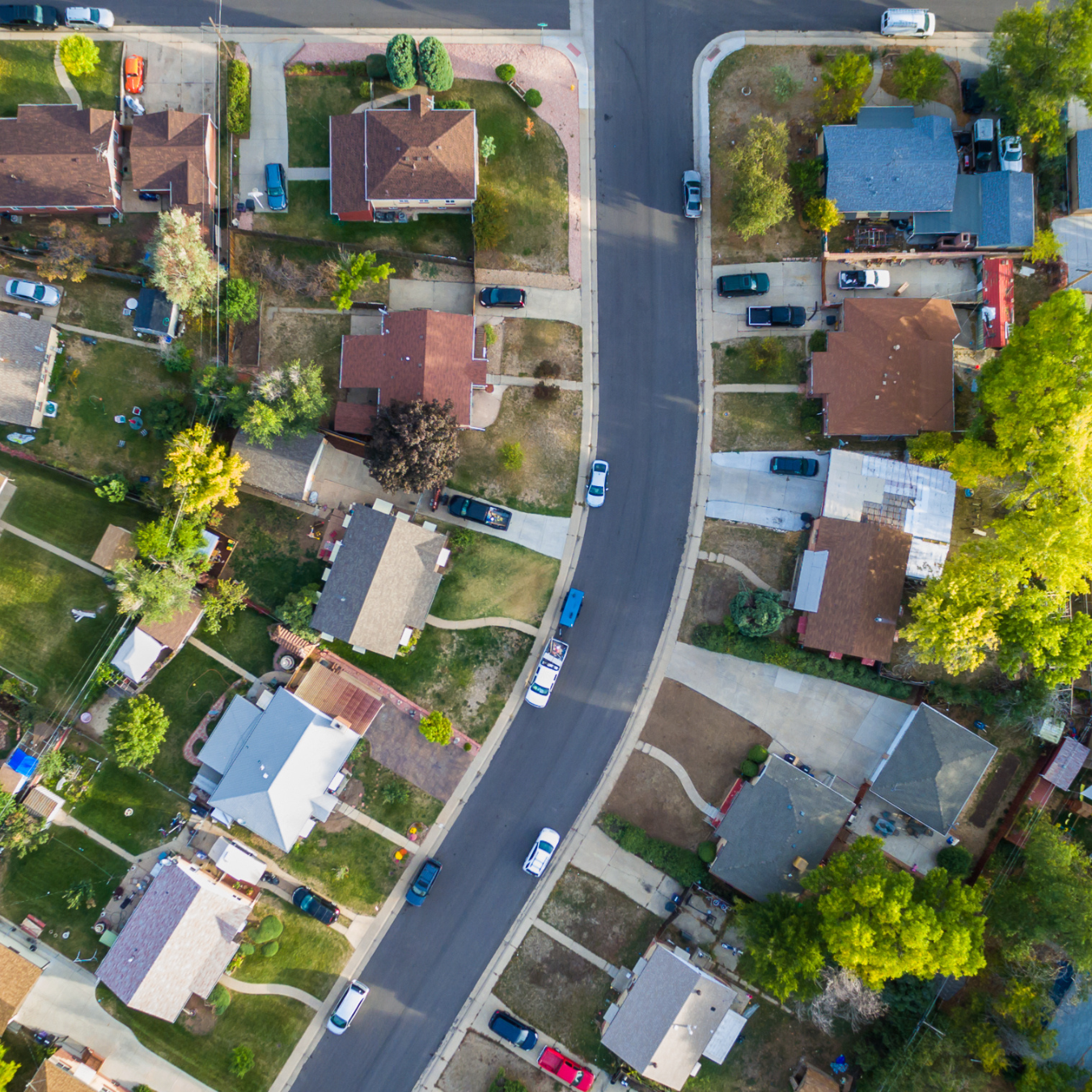When we think of a dream home, often it’s the aesthetics, the size, or the layout that first come to mind. However, the neighborhood in which this dream home resides is equally, if not more, important. A neighborhood isn’t just a collection of streets and houses; it’s a living, breathing community that reflects a set of values and a way of life. Whether it’s the vibrancy of local culture, the tranquility of nature, or the strength of educational facilities, each aspect contributes to the essence of what makes a place truly feel like home.
Understanding Your Values: The Foundation of Your Neighborhood Search
Embarking on the search for your ideal neighborhood is much like setting out on a voyage of self-discovery. It begins with a crucial step: understanding and defining your core values. These values are the guiding stars that will lead you to a community where you truly resonate and thrive. Be it a strong sense of community engagement, a commitment to environmental sustainability, a focus on top-tier education, or any other value, recognizing what matters most to you is essential.
The Impact of the Values
The impact of these values on your neighborhood choice cannot be overstated. For instance, if community engagement tops your list, a neighborhood with active social groups, frequent community events, and a welcoming atmosphere would be ideal. On the other hand, if environmental sustainability is your priority, a community with green initiatives, access to public transportation, and energy-efficient homes would align more closely with your beliefs.
The Home Search
Through my years as a real estate agent, I’ve witnessed firsthand how clients’ values profoundly shape their home searches. One memorable couple was deeply committed to environmental conservation. For them, a home in a neighborhood with a robust recycling program, solar energy options, and a community garden was non-negotiable. Another client, a retired teacher, prioritized lifelong learning and sought a community with a vibrant cultural scene, local libraries, and opportunities for adult education. These stories illustrate how varied and vital personal values can be in finding not just a house, but a home.
The Role of the Real Estate Agent
This is where the role of a real estate agent becomes pivotal. As an agent, it’s my responsibility and privilege to help you align these values with your neighborhood search. By understanding what you hold dear, I can tailor the search process, ensuring that the neighborhoods we explore together not only meet your practical needs but also echo your deepest values. It’s about creating a harmony between your lifestyle, aspirations, and the place you choose to live, ensuring that your new neighborhood is more than just a location—it’s a reflection of who you are and what you cherish.
Researching Neighborhoods: Beyond the Surface
When it comes to choosing the right neighborhood, the key lies in thorough research and going beyond the surface. It’s not just about statistics and demographics, but about understanding the heartbeat of the community. Here are some insightful strategies to help you delve deeper into potential neighborhoods.
Events and Gatherings
Firstly, explore the community’s pulse through its events and gatherings. Local fairs, farmers’ markets, art shows, or community meetings can provide invaluable insights into the neighborhood’s culture and values. Are there events that resonate with your interests? Do these gatherings foster a sense of community that you’re looking for? These are important questions to consider.
Education
Next, consider the educational landscape, especially if you have or are planning to have children. Visit local schools, talk to parents in the area, and understand the educational ethos and achievements of these institutions. Even if you don’t have children, the quality of schools can affect property values and reflect the community’s investment in its future.
Public Transportation
Public transportation and other amenities are also crucial. Efficient public transit can make daily commutes more manageable and reflects a commitment to environmental sustainability. Look into the availability and accessibility of parks, healthcare facilities, grocery stores, and other amenities. These not only cater to your daily needs but also shape your lifestyle and interaction with the neighborhood.
In-Person
Visiting the neighborhoods in person is invaluable. Spend time walking the streets, chat with local shop owners or residents, and get a feel for the daily life there. Observing the neighborhood at different times and days can give you a clearer picture of the community dynamics – the quiet of the morning, the after-school bustle, or the weekend vibes.
Policies
Finally, understanding local policies and initiatives is crucial. Research the area’s development plans, zoning laws, and any community-led initiatives. Are there plans for future developments that align with or contradict your values? How do local leaders and community members engage with and address issues in the area? This knowledge can help you gauge how the neighborhood might evolve and whether it aligns with your long-term vision.
By taking these steps, you can move beyond the basic facts and figures and understand the true essence of a neighborhood. It’s about finding a place where your values are reflected in the everyday life and fabric of the community.
Considering Long-Term Implications and Community Involvement
Choosing a neighborhood is a decision that extends far beyond the immediate appeal of a property or its surroundings. It’s a commitment to a community and a way of life, often with significant long-term implications. Understanding these implications is crucial in making a decision that you’ll be content with for years to come.
Property Values
One of the key considerations is the trend in property values. An area on the upswing, showing signs of growth and development, might be a wise investment, but it’s also important to consider the pace and nature of this growth. Is it sustainable? Does it align with your values? For instance, rapid commercial development might increase property values but could also alter the character of a neighborhood you cherished for its quiet, residential nature.
Developments
Equally important are potential developments in the area. Upcoming infrastructure projects, new schools, or commercial complexes can significantly impact the neighborhood’s appeal, lifestyle, and community dynamics. It’s essential to research and understand these plans, as they can affect not only your day-to-day life but also the long-term desirability of the area.
Social Community
Beyond these practical considerations, there’s the social fabric of the community to consider. A neighborhood is more than a collection of homes; it’s a tapestry of relationships and shared experiences. Getting involved in local initiatives, whether it’s a community garden, a neighborhood watch program, or a local school board, can help you integrate into the community and contribute to shaping its future. This involvement can not only align your personal values with those of the community but also enrich your living experience.
Community Involvement
Community involvement offers a unique opportunity to forge meaningful connections with your neighbors and develop a sense of belonging. Participating in local events, volunteering, or simply frequenting local businesses can open doors to new friendships and networks. These relationships often become the unseen threads that hold the community together, making your neighborhood not just a place you live in but a place you’re an integral part of.
When considering a neighborhood, it’s vital to look ahead. Understand the economic trends, potential developments, and opportunities for community involvement. These factors will not only influence your quality of life but also ensure that your home is in a community that grows and evolves in ways that resonate with your values and aspirations.
Making the Decision: Balancing Desires and Realities
Making the final decision in your neighborhood search often involves a delicate balance between your ideal desires and the practical realities of life. It’s a journey of finding a middle ground, understanding that while the perfect match might be a rare find, a neighborhood that closely aligns with most of your values and needs is attainable.
Small Compromises
Compromise is an inherent part of most major decisions, and choosing a neighborhood is no exception. While it’s important to not lose sight of your core values, flexibility in certain areas can open up more possibilities. For instance, you might love the idea of living in a bustling downtown area, but the quieter suburbs offer more space within your budget. Alternatively, a neighborhood might tick all your boxes but requires a longer commute to work. Balancing these practical considerations is key.
Budget
Budget is often the most significant constraint and rightly so. It’s crucial to be realistic about what you can afford while still trying to meet as many of your criteria as possible. Remember, a home is not just a one-time purchase but an ongoing financial commitment.
Work Considerations
Distance to work and the daily commute can greatly affect your quality of life. While a dream neighborhood might be further away from your workplace, consider the impact of a longer commute on your daily routine and overall well-being. Similarly, available housing options within the area might require you to rethink the type of home you’re looking for—perhaps a townhouse instead of a detached home, or vice versa.
Non-Negotiables
I encourage you to create a list of non-negotiables and areas where you can be more flexible. This list is a practical tool that will help you stay focused on what’s most important to you while allowing room for compromise in less critical areas. Non-negotiables might include aspects like safety, school quality, or specific amenities, while flexible areas could include house size, exact location, or style of home.
Remember, the decision is not just about the here and now, but about your future happiness and comfort. By thoughtfully balancing your desires with the realities, and being open to compromise, you can make a well-informed decision that brings you the best possible match for your new neighborhood and home.
Wrap It Up
If you find yourself needing guidance or second opinions as you navigate this important decision, remember that help is always at hand. As a real estate professional, I’m here to offer personalized advice and assistance tailored to your unique situation. Whether it’s helping you identify what matters most to you in a neighborhood, providing insights into different communities, or simply being a sounding board for your ideas, I’m committed to supporting you in this exciting journey.
So, as you step forward in your search for the perfect neighborhood, take heart in knowing that you’re not alone. With the right resources and guidance, your ideal neighborhood is within reach, waiting to welcome you into its fold. Don’t hesitate to reach out for the support you need to make this important decision, one that will shape your life and memories for years to come.


